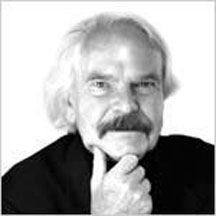WASHINGTON (Reuters) – How do you reconcile the traditions of many Muslim immigrants with the freedoms and values of 21st century Western Europe?
It’s a question that has led to periodic outbursts of vigorous debate from France to Holland and Switzerland. In Germany, the discussion has been relatively subdued. Until now.
Why? A passage in a book considered so unsettling that its author, Thilo Sarrazin, was forced to resign from the board of Germany’s central bank this month, provides part of the answer.
Criticism of Islam and Muslim immigrants, he writes, is wrongly seen to “equal Islamophobia which equals racism which equals anti-Semitism which equals right-wing radicalism which equals national socialism (Nazism).” In a country deeply ashamed of its 1933-1945 Nazi past, that’s enough to mute debate.
Sarrazin’s book, Deutschland schafft sich ab (Germany abolishes itself), came under withering assault from Germany’s political and intellectual elite even before its publication and (judging from some of the comments) even before many of the critics waded through its 461 dense, statistics-laden pages.
It is not an anti-immigration, anti-Islam tirade, it is an argument against a combination of flawed immigration and social welfare policies that, according to Sarrazin, have tended to attract a sizeable number of immigrants more interested in living off generous government handouts than in finding a place in the labour market, climbing up the economic ladder and integrating into German society.
Immigrants from Muslim parts of former Yugoslavia, from Arab and North African countries and from Turkey (the largest group) “are the core of the integration problem,” Sarrazin writes, citing dismal statistics on scholastic achievement, unemployment, dependence on welfare payments, crime and reluctance to learn German, an essential step towards integration.
In contrast, immigrants from Asia or India were doing particularly well in integrating and in making economic progress.
Sarrazin’s arguments are part of a European backlash against multiculturalism, the notion that all cultures are equal and society is enriched by encouraging separate cultures to exist side by side rather than blending into one.
The first serious critique of the concept came from the left, with an essay in 2000 by the Dutch author Paul Scheffer who said multiculturalism had blinded politicians to the fact that ethnic minorities, mainly Muslims, had higher rates of unemployment, poverty, school drop-outs and crime and that they failed to integrate.
Scheffer’s controversial piece preceded the murder in 2002 of Pim Fortuyn by a Dutchman who objected to his criticism of Muslim immigration and the murder of filmmaker Theo van Gogh by a Muslim extremist. Scheffer’s essay was followed by others, outside Holland and from both sides of the political spectrum.
Some political leaders agreed. Before he became Britain’s Prime Minister, David Cameron said multiculturalism contributed to “deliberately weakening our collective identity.”
French ban burqas, Swiss ban minarets
In the week the German debate over Sarrazin’s book reached a crescendo, the French parliament banned burqas and niqabs, the head-to-toe robes worn by devout Muslim women. Switzerland drove another nail into the coffin of multiculturalism last year with a referendum that ended in a ban on the construction of minarets.
Back to Germany, where those who rebuked Sarrazin included chancellor Angela Merkel and the head of the conservative Christian Social Union, Alexander Dobrindt, who remarked “this guy is nuts.” Embarrassingly for politicians and political commentators of all stripes, much of the citizenry disagreed.
The first edition of his book was sold out nationwide within days.
By mid-September, there were long queues in one of the few bookshops in central Frankfurt that had stocked ample supplies. A few days later, the publisher said the total print run would be 250,000, ten times what had been expected.
A public opinion poll in September showed that 70 per cent of those surveyed partly or fully agreed with Sarrazin, who is a member of the left-of-centre Social Democratic Party from which he now faces expulsion after close to 40 years of membership. Party leaders deem some of the arguments in his book racist.
The front page of the German news magazine Der Spiegel carried a portrait of the bespectacled, 65-year-old ex-banker with the headline “Folk Hero Sarrazin.” Sub-headline: “Why so many Germans are seduced by a provocateur.”
Provocation is in the eye of the beholder and one commentator, Susanne Gaschke of the liberal weekly Die Zeit ascribed the “enthusiastic acceptance for Sarrazin’s belated taboo-breaking” to a retroactive settling of accounts for the years in which politically correct multiculturalism made it difficult to touch the subjects he covers.
One is demographics and boils down to a gloomy forecast: ethnic Germans are dying out, slowly but surely. If present trends continue, ethnic Germans will be a minority in their own country by 2100, comfortably outnumbered by Turks.
Long-range demographic forecasts have to be taken with a pinch of salt but there is no dispute that Germany’s birth rate, the lowest in Europe, has fallen way below the so-called replacement rate.
There is no dispute either that the higher a woman’s education, the fewer children she has. Conversely, the lower a women’s education, the higher her fertility.
That applies to a large proportion of Muslim immigrants. And that leads to Sarrazin’s nightmare and controversial prediction: a smaller, older and dumber Germany. (Bernd Debusmann is a Reuters columnist. The opinions expressed are his own) (You can contact the author at [email protected])










